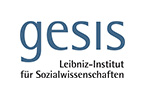Scientific data are valuable, but collecting them is complex and resource-intensive. The aim of some scientific initiatives is therefore to improve the re-use of scientific data. However, this is not easy, because they are often insufficiently accessible. In order to make scientific data more accessible and reusable, new research infrastructures are currently being developed in Germany, some of which are being bundled under the umbrella of the National Research Data Infrastructure (NFDI). Under this umbrella, different consortia are developing subject-specific forms of indexing their data.
In the future, the NFDI Basic Services (Base4NFDI) will offer services that are important for the functioning of these data infrastructures, such as certification or authentication services, solutions for access to software or other support services for researchers. However, the development of these basic services is a complex process in which a large number of actors are involved. The goal of the project “Systematic Assessment of Impact of Base4NFDI” is to understand this process in more detail. In addition, the project can also provide information for the improvement and further development of these infrastructures. As part of this research, data on the perception, use and evaluation of new services within the framework of Base4NFDI will be collected. In doing so, the different perspectives in infrastructure development are taken into account: users are surveyed as well as infrastructure operators, i.e., those organizations that offer or make data accessible themselves.
The project is characterized by a mix of quantitative and qualitative methods (surveys, interviews, document analyses and participatory observation). With this project, the DZHW, together with other institutions, is contributing to the development of scientific infrastructures in Germany.



